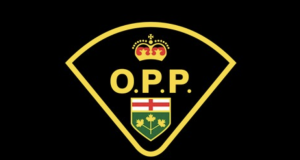Northern Ontario communities are experiencing a homelessness, addiction, and mental health crisis. In Northern Policy Institute’s latest paper, More than Just a Number: Addressing the Homelessness, Addiction, and Mental Health Crisis in the North, author Holly Parsons explores current realities and eight policy strategies to help move Northern Ontario communities forward.
The paper was completed in partnership with the Federation of Northern Ontario Municipalities, the Northwestern Ontario Municipal Association, and the Northern Ontario Service Deliverers Association.
The most recent data on homelessness from 2021 shows that Sault Ste. Marie and the districts of Kenora, Nipissing, and Cochrane have larger homeless populations than some of Ontario’s largest municipalities per 1,000 people. In addition, opioid-related emergency department visits and deaths have risen considerably in recent years. Furthermore, save for North Bay Parry Sound District Health Unit, the percentage of Northern Ontarians who perceived their mental health as ‘very good or excellent’ is below the provincial average.
The paper further shows that municipalities are constrained in their budgets to spend additional dollars on homelessness, mental health and addictions.
With these figures in mind, it is clear current services and programs are likely not meeting the needs of those in Northern Ontario communities. This paper identifies eight evidence-driven and economically viable strategies decision-makers can take to address these barriers and service gaps, both directly and indirectly:
- Provide long-term funding for capital repairs on community housing units;
- Amend the Health Protection and Promotion Act, 1990 to define a Northern Service Hub and provide additional funding to make it available in communities;
- Establish a joint action taskforce to collect data and intelligence on the underlying and systematic retention issues of health care professionals in Northern Ontario;
- Support new and existing Housing First programs;
- Support new and existing culturally sensitive community housing facilities for Indigenous peoples;
- Establish a Northern Mental Health and Addictions Centre to address the unique challenges of service and program delivery in Northern Ontario;
- Contract a third-party operator for interfacility patient transfers to relieve the workload of paramedics; and
- Establish mandated mobile crisis intervention teams (MCIT) in municipalities throughout Northern Ontario.
“Homelessness, addiction and mental health issues in Northern Ontario are extremely complex and difficult to solve, in part, because they are largely interconnected,” states Parsons. “As such, coordinated policy initiatives, and action from various actors, is a must.”
This work was made possible through NPI’s Northern Analyst Collective program.
Want to learn more? Read the full report here: https://www.northernpolicy.ca/more-than-just-a-number
- Tenaris Commits an additional $78,500 to Support HSCDSB STEAM Lab Programming - February 21, 2026
- Safety Reminder: Keep Children Off Snowbanks Near Power Lines - February 21, 2026
- Une élève de Wawa exerce son leadership au Sénat des élèves du CSC Nouvelon - February 20, 2026
 Wawa-news.com Local and Regional News
Wawa-news.com Local and Regional News

